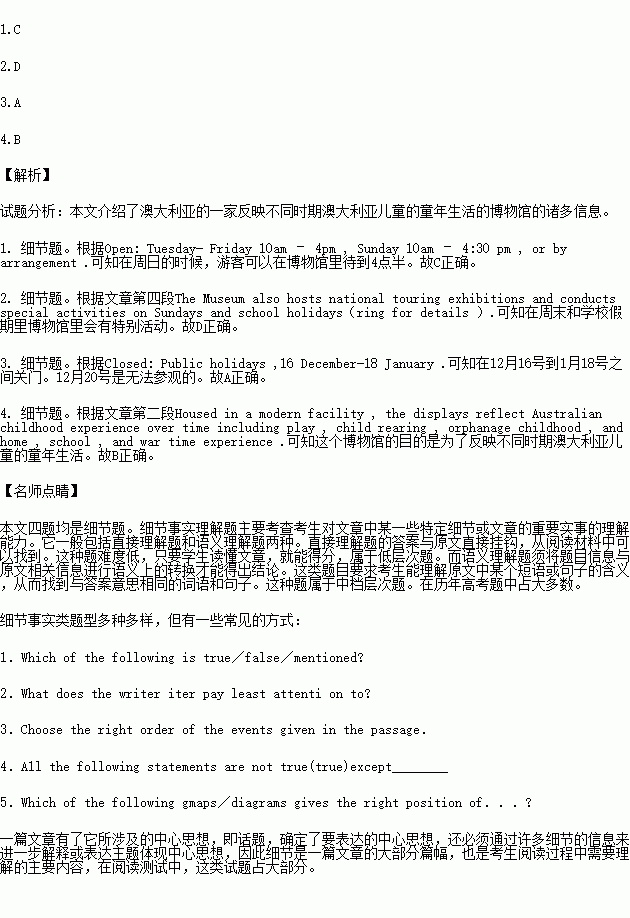题目内容
The Museum of Childhood is Australia’s most comprehensive collection of childhood items including toys , dolls , infant and school material .
Housed in a modern facility , the displays reflect Australian childhood experience over time including play , child rearing , orphanage childhood , and home , school , and war time experience .
There are many hands –on exhibits and education sessions including the famous ‘lesson’ in the 1920s One Teacher Bush Classroom .
The Museum also hosts national touring exhibitions and conducts special activities on Sundays and school holidays(ring for details ).
Open: Tuesday- Friday 10am – 4pm , Sunday 10am – 4:30 pm , or by arrangement .
Special activities on Sundays as advertise .
Closed: Public holidays ,16 December-18 January .
Location: Edith Cowan University campus , Bay Road , Claremont (take bus 208 and alight at the Bay Road and Princess Road intersection . The Museum is 15 minutes’ walk from Claremont train station )
Tel :(08) 9442 1373 ; Fax ; (08 ) 9442 1314
1.On you can stay at the Museum until half past four .
A.Wednesday B.Friday C.Sunday D.Monday
2.If you want to attend a special activity , you’d better come on .
A.Monday B.Tuesday C.Saturday D.Sunday
3.When you come on December 20th , Friday ,you will find the Museum .
A.closed
B.holding special activities
C.not closed until 4:00
D.not closed until 4:30
4.The main purpose of the Museum of Childhood is to .
A.display toys , dolls , infant and school material
B.reflect Australian childhood experience over time
C.host national touring exhibition
D.tell you the famous ‘lesson’ in the 1920s

